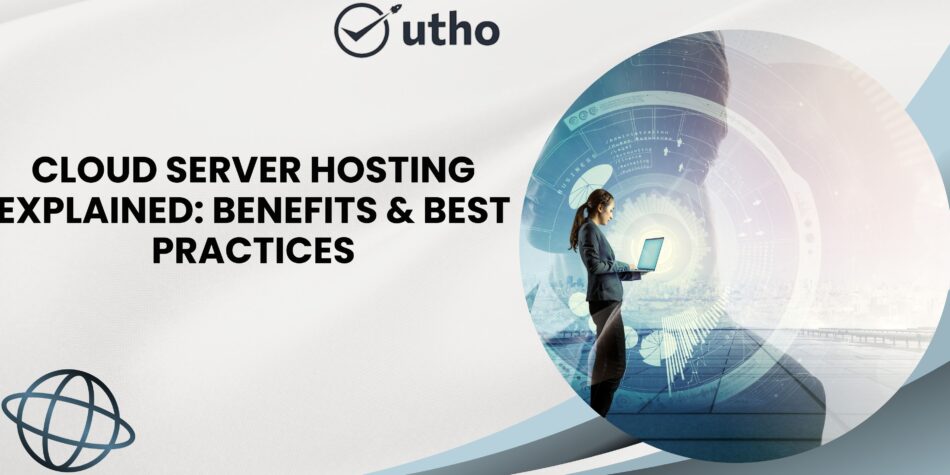As enterprises adapt to digital transformation at scale, traditional server infrastructures often fall short of meeting today’s expectations for agility, availability, and control. Cloud server hosting offers a modern path forward—one that eliminates hardware limitations while supporting enterprise goals like cost optimization, operational resilience, and real-time scalability. Yet despite its maturity, the concept of cloud server hosting is often misunderstood or misapplied. This article unpacks its real business value and outlines proven practices enterprises can trust.
Scalable Cloud for Secure Growth
Enterprises don’t just need server space—they need resilient infrastructure that grows with them. Cloud server hosting allows organizations to deploy computing resources flexibly across global networks, removing the constraints of physical hardware and offering nearly infinite scalability. But beyond scalability lies another critical advantage: security. A well-architected cloud environment can meet or exceed the security posture of most on-premises systems, thanks to compliance, network segmentation, and consistent monitoring.
Before diving into deployment models or cost benefits, it’s important to address what makes cloud hosting enterprise-ready. Leading providers today offer robust features, including:
- 99.9% uptime SLA, ensuring high availability for mission-critical applications
- Private networking (Virtual Private Cloud), to isolate traffic and limit exposure
- End-to-end encryption, access control policies, and DDoS protection
- ISO 27001 and SOC 2 compliance, aligning with industry-specific regulations
- No vendor lock-in, ensuring strategic flexibility and easy workload migration
- 24/7 expert support, backed by technical SLAs
Cost-Efficient Infrastructure Without Complexity
In traditional data centers, enterprises often overprovision hardware to accommodate peak workloads, leading to excessive spending on idle resources. Cloud server hosting eliminates this inefficiency with flexible pricing models. Organizations pay only for the resources they consume, whether it’s compute, memory, or storage.
This usage-based pricing has two key impacts. First, it enables budget predictability through detailed billing metrics and customizable alerts. Second, it supports financial agility, empowering IT leaders to redirect capital from infrastructure maintenance to innovation.
Organizations that shift from legacy infrastructure to a cloud server model typically realize:
- A 30–50% reduction in operational overhead from hardware and maintenance
- Lower upfront investment, as infrastructure is provisioned on-demand
- Reduced energy costs and physical space consumption
Reliable Performance for Business Continuity
Downtime remains a critical risk for enterprise systems. Whether it’s an eCommerce platform or a financial services application, even a few minutes of unavailability can lead to reputational and revenue losses. Cloud server hosting addresses this challenge through redundancy, automated failover, and distributed data centers.
Most providers offer a 99.9% uptime SLA, ensuring that applications remain available around the clock. In practice, this means that if a data center experiences an issue, your application is seamlessly transferred to another location without manual intervention.
Performance reliability is also supported by:
- Global CDN integration to reduce latency and load times
- Real-time monitoring and alerts for performance anomalies
- Disaster recovery options include automatic snapshots and backups
Enterprise-Grade Security and Compliance
Security is not a feature—it’s a foundational requirement. For enterprises operating in regulated industries like healthcare, finance, or government, cloud server hosting must comply with strict security frameworks.
The right hosting environment will offer:
- ISO 27001 and SOC 2 Type II certifications to validate processes and data integrity
- Virtual Private Clouds (VPCs) that allow you to build logically isolated environments
- Multi-factor authentication, firewall rules, and IP whitelisting
- Data residency controls, allowing organizations to store data in specific geographic regions
These security features help enterprises maintain compliance with GDPR, HIPAA, PCI-DSS, and other regulatory standards while also reducing internal risk exposure.
Support That Scales With Your Business
Adopting cloud server hosting is not just a technical change—it’s an operational shift. That’s why expert support is essential. Enterprises benefit most from environments backed by 24/7 technical support, account managers, and dedicated migration specialists.
Reliable providers also offer:
- Priority response times for mission-critical issues
- Dedicated onboarding assistance
- Knowledge bases and live chat to support in-house teams
A Strategic Edge With Utho Cloud
For forward-looking businesses, choosing the right platform makes all the difference. Utho Cloud, for example, offers a fully managed cloud server environment designed with enterprise-grade features at its core. From private networking to high-availability zones and compliance-ready architecture, Utho supports scalable cloud growth without vendor lock-in.
By combining transparent billing, customizable infrastructure, and strategic support, Utho enables businesses to modernize their hosting environment while maintaining security, compliance, and control.
Final Thoughts
Cloud server hosting, when approached strategically, offers far more than just virtualized infrastructure. It provides a secure, scalable, and cost-effective platform for innovation, resilience, and growth. Enterprises can no longer afford to rely solely on static, hardware-bound systems. Cloud hosting offers a smarter, more adaptable path forward—with built-in trust signals like 99.9% uptime SLAs, ISO/SOC2 compliance, and 24/7 expert support.
The path to modernization starts with understanding the real value of cloud-and then choosing a hosting partner that delivers it.
 WhatsApp Us Now
WhatsApp Us Now








